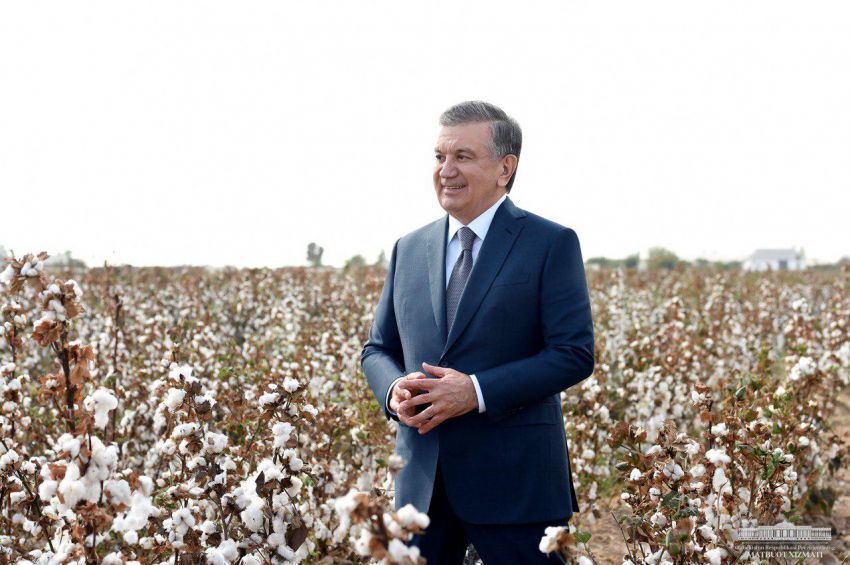
The Government portal of the
Republic of Uzbekistan
Shavkat Mirziyoyev visits Angor district
2019-10-17 | Politics
President Shavkat Mirziyoyev got acquainted with cotton crop grown on the field of the textile cluster «Angor Surkhon Gururi», in Angor district.

The Head of the state gave instructions to create textile clusters during last year’s trip to the region. 6 such clusters have been organized in Surkhandarya, they cover more than 67 percent of cotton fields of the region. In 2020, it is planned to bring this figure to 100 percent.
The cluster system is an important factor in introduction of modern technologies and innovations in the agricultural sector. Angor Surkhon Gururi LLC is working to increase the yield and competitiveness of products. The cluster has 9.1 thousand hectares of land, of which more than 8.1 thousand hectares are cultivated. This year, cotton of fine-fiber varieties has been grown on almost 5 thousand hectares.
In the last two years, the varieties Surkhon-14 and Surkhon-16 created by domestic scientists have been tested. These fine-fiber varieties are valuable in that they are resistant to extreme weather conditions, lack of water, harmsil and pests, as well as ripen early. Such cotton is in demand on the world market due to the length and strength of the fiber, meeting the requirements of textile industry. The economic effect of fine-fiber cotton is 60 percent greater compared to other varieties with equal application of labor and resource consumption.
«We get a crop less than our land can give, less than the resources invested. We stopped engaging in varieties, scientific agricultural technology. Labor productivity has fell, interest has decreased. But a man who works hard on the earth must be rich. That is our goal. There will be no development without science», said Shavkat Mirziyoyev.
This year, 120 billion soums were allocated from the State budget to solve another pressing issue – the fight against insect pests. In particular, in Surkhandarya region 13 billion soums were allocated for these purposes.
Here, a conversation took place with farmers and specialists, who noted that pest control measures had given their result and allowed to accumulate a rich harvest.
The President instructed to expand the cultivation of fine-fiber cotton, to encourage scientists. Prospects for development of clusters were discussed.
«From now on, all clusters organize livestock complexes, because they have a feed base. If livestock production develops, meat and milk will be available. This is very important for the well-being of our people, the health of our children», the Head of the state said.
Today, the cluster employs more than 900 people. In the future, it is planned to create more jobs through development of processing industry.
Source: UzA









